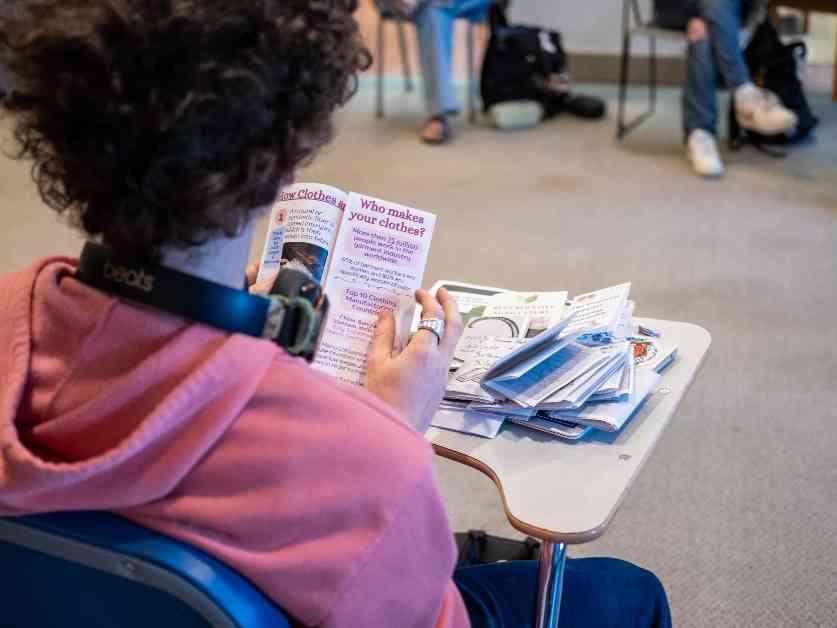Environmental sustainability has become a pivotal focus in higher education institutions across the United States, with a growing number of colleges and universities integrating sustainability into their curricula at both the undergraduate and graduate levels. Courses such as Environment and Sustainability in Enlightenment France at Dickinson College in Pennsylvania, Modeling for Energy and Infrastructure Project Finance at the Haas School of Business at the University of California, Berkeley, Adirondack Cultural Ecology at the State University of New York College of Environmental Science and Forestry, and Perspectives on the Amazon at Duke University in North Carolina, exemplify the diverse approaches taken by institutions to rethink the study of sustainability.
The Aspen Institute’s This Is Planet Ed has recently launched the Higher Ed Climate Action Plan, emphasizing the importance of educating and supporting students in sustainability efforts. According to the plan, higher education must advance a broad, interdisciplinary, and future-oriented learning agenda to equip students with the skills needed to navigate a sustainable workforce. The plan also highlights the necessity for cross-disciplinary educational offerings to address the scale of environmental challenges we currently face.
While a global survey revealed that only 60 percent of higher education institutions incorporate climate-related content in fewer than 10 percent of their courses, a select group of colleges and universities are leading the way in integrating sustainability throughout their curricula. These institutions are breaking traditional academic silos and disciplines to ensure that sustainability courses are accessible to a wide range of students.
One such institution at the forefront of sustainability education is Duke University, where Toddi Steelman, former Stanback Dean of the Nicholas School of the Environment, is actively involved in promoting climate literacy across all majors. Duke aims to make every major a climate major by 2028, emphasizing the importance of preparing students to address climate challenges in their respective fields. By implementing a fluency framework that spans skills, behaviors, and attitudes related to climate and sustainability understanding, Duke is paving the way for a more comprehensive approach to sustainability education.
Similarly, the SUNY College of Environmental Science and Forestry in Syracuse has been recognized for its sustainability curriculum, despite not offering a dedicated course on climate change. The institution focuses on teaching fundamental concepts that enable students to understand the science of climate change and engage in adaptation and mitigation efforts. Discussions are underway to introduce an interdisciplinary introductory course that delves into the basic science, impacts, and implications of climate change on various aspects of society.
At Dickinson College, a liberal arts institution in Pennsylvania, sustainability education is a mandatory requirement for graduation. Over 50 percent of graduating students at Dickinson have taken four or more sustainability courses, with one in four completing more than six. The college offers a wide range of sustainability courses across departments and encourages interdisciplinary collaboration through co-taught courses like the “Mosaic” program. By immersing students in sustainability topics and experiential learning opportunities, Dickinson aims to instill a values-driven approach to sustainability education.
As institutions continue to prioritize sustainability in higher education, the shift towards an all-sustainable curriculum may soon become the norm rather than the exception. Bryan Alexander, an educational futurist, suggests that climate change is the new liberal arts, emphasizing the importance of integrating sustainability across all disciplines. By embracing sustainability as a core value in education, colleges and universities are not only preparing students to address environmental challenges but also shaping future leaders equipped to create a more sustainable world.
In conclusion, the integration of environmental sustainability into higher education curricula is essential for equipping students with the knowledge and skills needed to address pressing environmental challenges. Institutions that prioritize sustainability education are not only attracting students and faculty but also contributing to a more sustainable future for generations to come. As the landscape of higher education continues to evolve, a focus on sustainability will be crucial in shaping a more environmentally conscious and responsible society.

